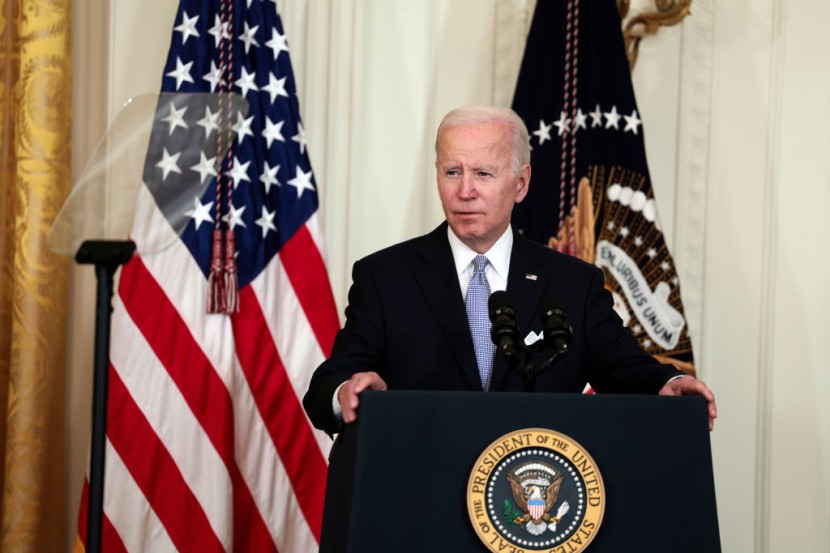
United States President Joe Biden met with Federal Reserve Chair Jerome Powell on Tuesday to discuss measures on addressing the record-high inflation that burdens consumers across the country.
The meeting, which took place for the first time since Powell's Senate confirmation for a second term earlier this month, comes as Biden strives to cut fuel, food, and consumer goods prices, which have propelled inflation to 40-year peak levels, as per a report from Reuters.
In television interviews on Tuesday, White House National Economic Council Director Brian Deese said Biden would discuss the Fed's independence, emphasize that the central bank has the tools to fight inflation, and examine the US and global economies.
The official told MSNBC that the country is currently experiencing a "transition" from a "historic economic recovery" to "more stable and resilient growth."
In an op-ed published Monday in The Wall Street Journal, President Biden stated he made "tackling inflation" his "top economic priority.
"The most important thing we can do now to transition from rapid recovery to stable, steady growth is to bring inflation down," Biden wrote.
Janet Yellen, who chaired the Federal Reserve before Powell from 2014 to 2018, was expected to attend the White House meeting, according to her staff.
Wall Street stock indexes dropped on Tuesday ahead of the meeting.
Fighting Inflation Might Bring Some 'Pain'
After the government spent trillions towards COVID-19 relief, the US economy grew at its fastest rate in over four decades in 2021, driving consumer spending and contributing to increased costs.
Unemployment has dropped to its lowest level in 52 years, according to a Labor Department report released earlier this month, boosting wage growth.
Read also: Russia-Ukraine War: Joe Biden Reveals Real Reason US Is Not Sending Rockets to Help Ukrainians
The Federal Reserve has already raised interest rates by 3/4 of a percentage point this year and aims to raise rates by half a percentage point at each of the next two sessions, with possibly more rises to follow.
According to a Fox Business story, the Fed chair recognized that decreasing inflation and limiting demand may cause some "pain," but he pushed back against the concept of an impending recession, citing the labor market and solid consumer spending as positive signs in the economy. Powell has warned, though, that a soft touchdown is not guaranteed.
Biden Assures Fed's Independence
In a Wall Street Journal live event in early May, Powell noted that addressing inflation is going to be a "challenging task" due to global events such as the ongoing Russia-Ukraine war and the lockdowns in China to curb the COVID-19 outbreak.
Despite mounting concerns on Wall Street that aggressive Fed tightening could unintentionally trigger a recession, Biden pledged not to interfere with the US central bank and its campaign on inflation.
According to a CNN report, the Powell-led Fed has been lambasted for taking too long to tackle soaring inflation by removing emergency support for the economy and starting interest rate increases.
The Fed, though, has committed to raising interest rates soon, and implemented it earlier this month for the first time since 2000. The US central bank has hinted at more aggressive rate hikes in the months ahead.
Recent economic indicators have fueled speculation that inflation may have reached 40-year highs in March. However, experts warn that returning to healthy levels will take time.








